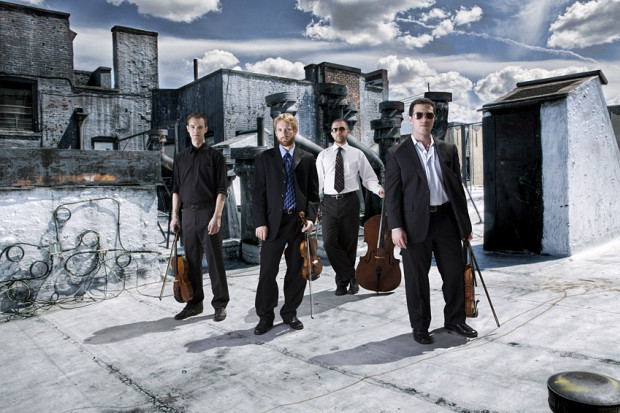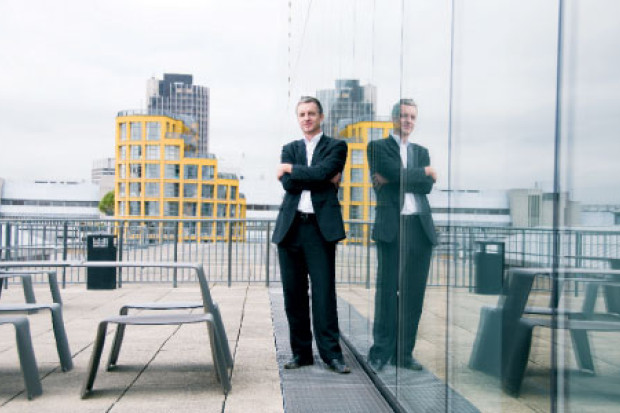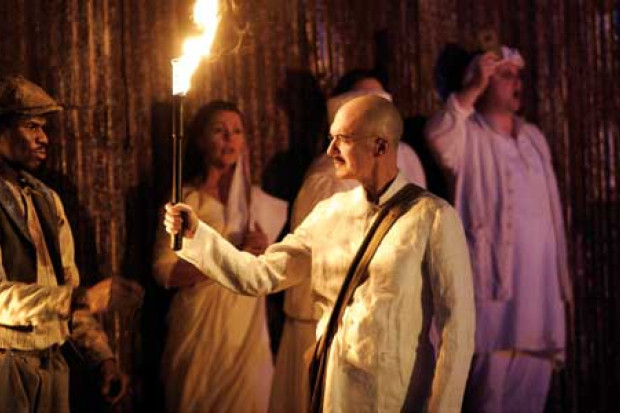The Phonography of Roger Doyle
Roger Doyle is a culture-jamming composer, whose existence is dependent on the madness of music. His muse is a fabrication of reality, plundering phonics and fictional collages of anecdotal narratives, hitting and splitting the ears of unsuspecting audiences. His innate understanding of intrinsic perceptual criteria, irreverent application, and evolving manifestation, allows musical consumption on par with global consumerism – his own phenomena extrinsically evoked through modern technology. Not that this should put one off his music, just leave your prejudices at the door! One idea of the nature of an artist is someone who reflects society, who encapsulates the feeling of the particular moment, and states that which is not possible in any other genre – through music as a profound communication, encompassing emotional and intellectual states of the human condition. Another view is of the composer as the tortured artist, continually searching, battling with internal demons, seeking truth and honesty, and exploring the sonic world. An alternative is of the artist as someone who blags about, bamboozling everyone with nonsensical sounds and structures, especially if in a genre known for its difficulty in apprehension.
Doyle, and his music, fits all the above. He composes, and as a composer, he continues to evolve. (The same cannot be said for his critics, however.) He appropriates technology, techniques, and style in true consumerist fashion, finding his own path (and along the way, his own truth). He is productive, innovative, and entrepreneurial, having released nearly all his music himself. More recently, he has re-released all his early works on CD, through the Silverdoor label.
Doyle’s music spans three decades, many technologies, and even more styles. An eclectic, experimental composer, he exhibits many original artistic traits, not least of which is a complete irreverence for the status quo. Most composers grow out of this – Doyle, as usual, goes in the opposite direction. His style is pluralistic and inclusive. However, it normally means he needs several critics, each from a different genre, to adequately appraise his music. But, it seems, Doyle is not bothered by this – he is resigned to being a mis-understood composer, whose music is broadcast backwards!
With quite a large opus, it is impossible to give an adequate introduction here. However, one of the best introductions to Doyle’s world is his magnum opus Babel. Composed over ten years, it is the culmination of an extraordinarly focused period of composing. Based on the Biblical idea of the Tower of Babel, with its multiplicity of languages, it afforded Doyle a broad canvas in which to explore his own diversity.
An accomplished work, it is a paradigm of miniature Doylettes – numerous contemporary references (for example, the Simpsons), stylistic pluralism, (classical, pop and electro acoustic) and immense structures (over 5 CDs, including the KBBL supplement). Babel is a rewarding listening experience, with something for everyone. For example, the ‘KBBL Leisure Pursuits radio show’ explores text-sound poetry, social satire, and humour, interspersed with pop and electronic music. Of course, only Doyle would dare to permanently fix a medium whose natural existence is rapid change and throwaway (American popular radio).
The included CD Passades, as an introduction to Doyle’s music, focuses on his wall-of-sound approach, aka chill-out (or freak-out) if the seventies are before your time (surely no-one reading this journal, ed.).
Digital communication, variable speed of language carriers, and an ephemerality of relationships are key elements here. Hopefully, it won’t be a passing flirtation with Doyle’s music – it is, but one facet of a many-sided composer. There is only one way to approach Doyle’s music – with an open mind, and a willingness to share the composer’s own sense of wonderment at the possibilities, and expressive beauty, of sound. For more information, and some disinformation, see www.rogerdoyle.com.
Published on 1 November 2003
Paschall de Paor is a writer, composer, and academic, currently living and working in Wales.














